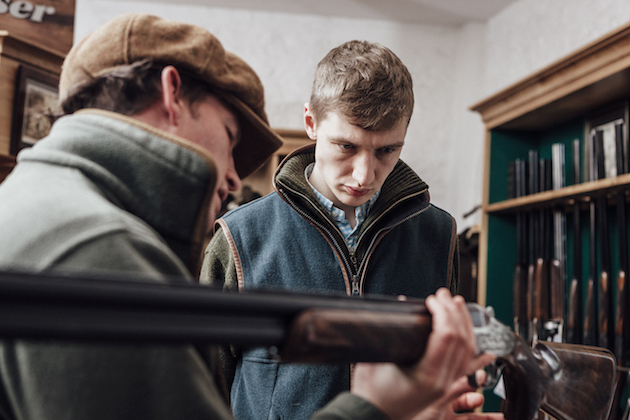What should you get? And from where?
So you’ve started shooting and now you’re set on buying your first shotgun. But should you buy new or second-hand? At an auction or from a gun dealer? Side-by-side or over-and-under?
Where’s the best place for buying your first shotgun?
We’d recommend buying your first shotgun from a gun shop.
There are several sound reasons for this.
- The staff will be experts
- You can ask all the questions you want
- They’ll be able to look at you and assess your build to help pick out the right model
- They’ll ask you questions about the type of shooting you plan doing
- They’ll check you for gun fit
- They’ll know whether you should opt for a 12-bore or 20-bore
- They can advise on the legal side
- You’ll be told how to get a shotgun certificate
- You’ll be advised about storage, keeping and transporting a shotgun. f
It’s crucial to apply for a shotgun or firearms certificate quickly because it can take weeks or even months to get through, depending on where you live. A reputable dealer will reserve your gun for you while you are waiting to receive your shotgun certificate.

A gun dealer will help you to apply for a shotgun certificate
What to buy
Be flexible because right now you can’t be sure how your shooting career will develop. So a multi-purpose gun offering flexibility of use would be sensible. That way you can try out all the different shotgun disciplines with the same gun. A generic gun is what clayshooters call a “Sporter” and game shooters call a “game gun”. They are essentially the same with a couple of minor differences.
Side-by-side or over-and-under? Most shooters opt for an over-and-under, finding them easier to use because there is just a single trigger and a narrower sighting plane down the single top barrel. An over-and-under would be my recommendation when buying a first gun. It’s also worthwhile getting a multi-choke version to add versatility.
Think about your physical size, strength and age. How much weight can you manoeuvre comfortably?
Try out guns from different makes as each manufacturer offers a different fit and handling characteristics. If you want to sell on your gun in future you’ll find it easier to resell a gun from a well known maker. You can check out different gun reviews here.

Gun shop staff will explain the inner workings of a gun to you
New or secondhand gun?
Budget aside, there are advantages to both new and second-hand guns.

The Beretta Silver Pigeon is a popular first choice
New gun
- You get a guarantee from the manufacturer or importer so you can be confident of the gun’s performance. You’ll also find it easier to source spare parts.
- The gun will have no history of bad treatment.
- However a new gun will be more expensive – add that cost to the other costs, such as a gun cabinet, lessons and your firearms certificate.
- New guns depreciate quickly
- If you have bought a beginner’s gun, you might want to upgrade after a year or so.
Second-hand gun
- You’ll find more choice of guns to fit your budget
- A dealer won’t sell you a bad gun
- It’s illegal to sell a gun that’s unsafe
- A well-chosen gun will hold its value for a few years
- You’re unlikely to get a guarantee
- You might find it tricky to get spare parts.
How much should you spend buying a first gun?
Invest £500-£1000 and you will get a very serviceable first shotgun either new or second-hand.
Should you buy a gun privately?
- On the plus side you might be offered something special
- Take an experienced Shot with you to check the gun out to see if it is safe (and worth the money)
- Make sure the seller holds a certificate
- Tell the police if you make a purchase
Other things to remember when buying a gun for the first time
- Wear the clothes you plan on shooting in when you’re being fitted for a gun. There’s a big difference in fit when you wear a bulky jacket compared to a light shirt.
- You will need to install a solid, lockable gun cabinet at home to keep your guns legally.
- A shotgun or firearm certificate doesn’t limit the amount of guns you can own but the police must be kept aware of every purchase you make.
- Don’t look at guns for sale ads until you have a good idea of what you need.
- It’s not compulsory to have insurance whilst you are shooting but public liability cover is definitely recommended. Many shooting organisations, including BASC, offer insurance as part of their membership benefits.
- Make sure you are up to date with shooting safety and law and know how to behave responsibly out in the field.




